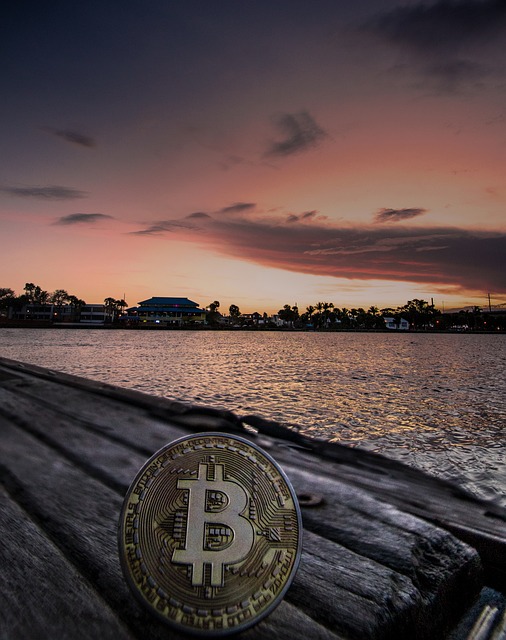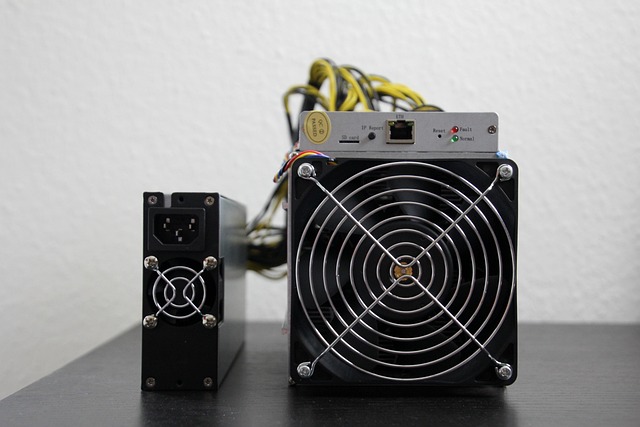The Inner Workings of DeFi: A Deep Dive into the System
The Inner Workings of DeFi: A Deep Dive into the System

Understanding the Basics: Exploring the Foundation of Decentralized Finance (DeFi)
Decentralized Finance, commonly known as DeFi, is a groundbreaking concept that is transforming the traditional financial systems we are accustomed to. In a nutshell, DeFi refers to a decentralized ecosystem built on blockchain technology, enabling financial activities to take place without the need for intermediaries such as banks. This innovative approach aims to make financial services more accessible, transparent, and inclusive for individuals worldwide.
At the core of DeFi lies the utilization of smart contracts, which are self-executing digital contracts that automate and enforce the terms of an agreement between parties. Smart contracts ensure that transactions on the DeFi platforms are executed in a secure and immutable manner, eliminating the need for human intervention and reducing the risk of fraud or manipulation. By leveraging the power of blockchain technology and smart contracts, DeFi paves the way for a more efficient, secure, and democratized financial system that empowers individuals to have full control over their assets and financial decisions.
The Rise of DeFi: How It’s Revolutionizing Traditional Finance Systems
As DeFi continues to gain traction, it is disrupting traditional finance systems in a profound way. Gone are the days of relying solely on centralized intermediaries such as banks and financial institutions.

One of the most significant ways in which DeFi is revolutionizing traditional finance systems is through the concept of peer-to-peer transactions. With DeFi, individuals can directly trade and exchange assets with one another, eliminating the need for traditional, centralized exchanges. This not only increases efficiency but also reduces costs and improves accessibility for people around the world. Additionally, DeFi enables individuals to earn passive income through decentralized lending and borrowing platforms, further decentralizing the lending market and providing more opportunities for wealth creation. The rise of DeFi is redefining the financial landscape, democratizing access to financial services, and sparking a new era of financial inclusion.
Unraveling the Blockchain Technology: The Backbone of DeFi
Blockchain technology serves as the backbone of the decentralized finance (DeFi) ecosystem, powering its various applications and functionalities. At its core, blockchain is a distributed ledger that records and verifies transactions across multiple computers or nodes. It eliminates the need for a centralized authority, like banks or financial institutions, by allowing participants to transact directly with each other. This decentralized nature of blockchain makes it a perfect fit for DeFi, as it enables peer-to-peer transactions and removes the need for intermediaries. All transactions on the blockchain are transparent and immutable, enhancing security and trust within the DeFi space.
One of the key features of blockchain technology is its ability to create smart contracts, which are self-executing contracts that automatically execute predefined rules without the need for intermediaries. These smart contracts ensure that the terms of an agreement are met by all parties involved, providing transparency and reducing the potential for fraud. In DeFi, smart contracts play a crucial role in enabling various financial activities, such as lending and borrowing, token issuance, and decentralized exchange. Smart contracts are coded and run on the blockchain, making them tamper-proof and resistant to censorship. This eliminates the need for traditional legal agreements and allows for efficient and secure financial transactions.
Smart Contracts: The Building Blocks of DeFi Applications
Smart contracts are at the core of decentralized finance (DeFi) applications, enabling transactions and agreements to be executed automatically without the need for intermediaries. These self-executing contracts are built on blockchain technology, allowing for secure and transparent transactions. By using smart contracts, DeFi applications can operate autonomously, eliminating the need for centralized authorities and streamlining processes.
One of the key advantages of smart contracts is their ability to eliminate the need for trust between parties. Traditionally, financial transactions require trust in intermediaries such as banks or legal systems. However, smart contracts are designed to eliminate the reliance on third parties by automating the enforcement of the agreement’s terms. This not only reduces costs and inefficiencies but also removes the potential for human error or manipulation. As a result, smart contracts enable decentralized finance to thrive by providing a secure and reliable platform for individuals to engage in financial activities.
Exploring Liquidity Pools: How DeFi Enables Decentralized Trading
Decentralized Finance (DeFi) has revolutionized the way trading is conducted by introducing liquidity pools. Liquidity pools are an essential component of DeFi platforms that allow users to contribute their assets and earn passive income in return. Unlike traditional centralized exchanges, where trading relies on a single order book, DeFi platforms offer decentralized trading through the use of these liquidity pools.
In a liquidity pool, users deposit their assets into a shared pool, which becomes the liquidity for trading on the platform. When a trade occurs, the pool automatically matches the buyer with the seller, eliminating the need for a centralized intermediary. This peer-to-peer trading mechanism increases transparency and reduces costs, making it an attractive option for many traders and investors.
The concept of liquidity pools is made possible by smart contracts, which automatically execute trades based on predefined parameters. These contracts ensure that trades are conducted fairly and that liquidity is available at any given time. Additionally, the decentralized nature of liquidity pools removes the risk of a single point of failure, making them more resistant to hacking attempts or other security breaches. As a result, DeFi platforms have gained significant traction in the financial industry, allowing individuals around the world to trade assets and contribute to liquidity pools without relying on traditional intermediaries.
• Liquidity pools are a key feature of DeFi platforms that enable users to contribute assets and earn passive income.
• Unlike centralized exchanges, which rely on a single order book, decentralized trading through liquidity pools offers transparency and reduced costs.
• In a liquidity pool, users deposit their assets into a shared pool that becomes the liquidity for trading on the platform.
• Smart contracts automatically execute trades based on predefined parameters, ensuring fairness and availability of liquidity at all times.
• The decentralized nature of liquidity pools makes them more resistant to hacking attempts or security breaches compared to traditional intermediaries.
• DeFi platforms have gained significant traction in the financial industry by allowing individuals worldwide to trade assets and participate in liquidity pools.
Yield Farming: Maximizing Returns through DeFi Investment Strategies
Yield farming, a popular investment strategy in the world of decentralized finance (DeFi), allows users to earn maximum returns on their assets. Through yield farming, individuals can lock up their cryptocurrency holdings in various DeFi protocols and receive high yields in return. The concept is based on providing liquidity to these protocols, which, in turn, generate rewards for the users.
To start yield farming, users must first choose a suitable platform or protocol that offers attractive annual percentage yields (APYs). By depositing their assets into liquidity pools or lending platforms, users contribute to the overall liquidity of the platform and earn rewards in the form of additional tokens or fees. However, it’s important to note that yield farming carries certain risks, such as smart contract vulnerabilities or impermanent loss. Therefore, it is crucial for individuals to conduct thorough research and carefully assess the risks before participating in yield farming.
Diving into Decentralized Exchanges (DEXs): Empowering Peer-to-Peer Trading
Decentralized exchanges, commonly referred to as DEXs, have emerged as an essential component of the decentralized finance (DeFi) ecosystem. Unlike traditional exchanges, DEXs enable users to trade cryptocurrencies directly with each other, eliminating the need for intermediaries such as brokers or banks. This peer-to-peer trading model has empowered individuals to have full control over their assets, promoting financial sovereignty and privacy.
One of the main advantages of DEXs is their decentralized nature, which ensures the absence of a single point of failure, censorship, or control. By operating on blockchain technology, DEXs leverage the consensus mechanism to validate transactions and record them in a transparent and immutable manner. This facilitates a trustless environment where users can securely carry out transactions without the need to put their faith in a central authority. Moreover, DEXs are generally accessible to anyone with an internet connection and a compatible wallet, making them more inclusive and borderless than their centralized counterparts.
The Role of Stablecoins in DeFi: Balancing Volatility and Stability
Decentralized Finance (DeFi) brings about various financial opportunities and innovations, but it also introduces challenges like volatility. This is where stablecoins step in to play a crucial role in maintaining stability within the DeFi ecosystem. Stablecoins are digital assets designed to hold a stable value, often pegged to a fiat currency like the US dollar. By providing a haven of stability, they enable users to mitigate the volatility associated with cryptocurrencies and facilitate seamless transactions within the DeFi space.
Stablecoins act as a bridge between the traditional financial world and the decentralized realm, allowing users to transact and store value with confidence. Unlike cryptocurrencies such as Bitcoin or Ethereum, whose values can fluctuate wildly, stablecoins maintain a steady value due to their pegged nature. This stability makes them an ideal medium of exchange and a reliable store of value within DeFi applications. Whether it’s facilitating instantaneous cross-border transactions or serving as a collateral asset, stablecoins enable efficient and secure transactions while providing users with peace of mind. Their easy integration into various DeFi platforms makes them an essential component in balancing volatility and stability within the decentralized space.
Governance in DeFi: How Decisions Are Made in a Decentralized System
Governance in DeFi plays a crucial role in ensuring that decisions are made in a fair and decentralized manner. Unlike traditional centralized systems where decisions are made by a few entities, DeFi allows participants to have a say in the decision-making process. This is achieved through decentralized governance protocols that enable users to vote on proposals and contribute to the development and improvements of DeFi protocols.
One of the key aspects of governance in DeFi is the use of governance tokens. These tokens give holders the right to vote on proposals and influence the direction of the protocol. The more tokens a user holds, the more voting power they have.

Overcoming Challenges and Looking Ahead: The Future of DeFi
As the world of decentralized finance (DeFi) continues to grow and evolve, it is inevitable that challenges will arise. One of the main challenges is the issue of scalability. With more users and applications being built on the blockchain, there is a need to find solutions that can handle the increasing demand without compromising the speed and efficiency of transactions. Additionally, security is another area that needs to be addressed. While blockchain technology itself is known for its security, it is crucial to constantly update and improve security protocols to stay ahead of potential threats and vulnerabilities.
Looking ahead, the future of DeFi holds great promise. As more people become aware of the potential and benefits of decentralized finance, adoption is expected to increase significantly. This will likely lead to greater financial inclusion, especially for those who are unbanked or underbanked. Additionally, advancements in technology will continue to drive innovation in the DeFi space, opening doors to new possibilities and use cases. However, it is important to note that regulation will play a crucial role in shaping the future of DeFi. Finding the right balance between innovation and regulation will be key to ensuring the long-term sustainability and stability of this burgeoning sector.
What is DeFi?
DeFi stands for Decentralized Finance. It refers to a system that uses blockchain technology to enable financial transactions without intermediaries like banks or traditional financial institutions.
How does DeFi revolutionize traditional finance systems?
DeFi eliminates the need for intermediaries, making financial services more accessible and efficient. It allows individuals to have full control over their funds, enables peer-to-peer transactions, and provides opportunities for earning passive income.
What is blockchain technology’s role in DeFi?
Blockchain technology is the backbone of DeFi. It ensures transparency, security, and immutability of transactions by recording them on a decentralized ledger. This technology enables trustless and efficient financial interactions.
What are smart contracts in the context of DeFi?
Smart contracts are self-executing contracts with predefined rules written into code. They automate transactions and eliminate the need for intermediaries. In DeFi, smart contracts enable various financial applications and services.
How do liquidity pools work in DeFi?
Liquidity pools are pools of funds provided by users to facilitate decentralized trading. They allow users to lend or borrow assets and earn interest. Liquidity pools ensure that there are enough funds available for smooth trading in DeFi.
What is yield farming in DeFi?
Yield farming is an investment strategy in DeFi that involves providing liquidity to decentralized platforms in exchange for earning rewards. It allows individuals to maximize returns on their crypto assets by leveraging various protocols and strategies.
How do decentralized exchanges (DEXs) empower peer-to-peer trading?
Decentralized exchanges (DEXs) enable users to trade cryptocurrencies directly with each other without the need for intermediaries. They provide a peer-to-peer trading experience while ensuring security, privacy, and control over funds.
What is the role of stablecoins in DeFi?
Stablecoins are cryptocurrencies designed to maintain a stable value, often pegged to a fiat currency like the US dollar. They provide stability in the highly volatile crypto market and are commonly used as a medium of exchange and store of value in DeFi.
How are decisions made in a decentralized system like DeFi?
In DeFi, decisions about protocol upgrades, governance, and proposals are made through a decentralized governance system.

What are the future prospects and challenges of DeFi?
The future of DeFi looks promising, with the potential to disrupt traditional finance further. However, challenges such as scalability, security, regulatory hurdles, and user experience need to be addressed to achieve mass adoption and mainstream recognition.
Todays Featured Product:
Buy, exchange and grow your crypto securely with a Ledger hardware wallet, combined with the Ledger Live app. It’s never been easier to keep your crypto safe and accessible. Buy direct from Ledger.com and get todays Special Offers Here.




